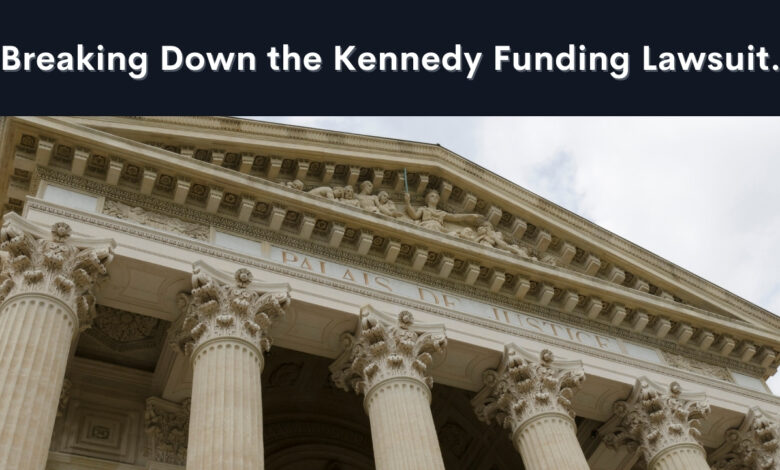Breaking Down the Kennedy Funding Lawsuit: Key Insights and Implications for the Finance Industry

Introduction to the Kennedy Funding Lawsuit
The finance industry is often perceived as a world driven by numbers and data, but it is also a realm deeply entwined with legal complexities and ethical considerations. The Kennedy Funding lawsuit is a striking example of how legal battles can not only influence the parties involved but also have wider implications for the industry as a whole. This lawsuit, emerging from intricate financial transactions and agreements, has captured the attention of industry experts, legal professionals, and the public alike. In this comprehensive analysis, we delve into the details of the Kennedy Funding lawsuit, exploring its background, legal nuances, and the broader impact it holds for the finance sector.
Understanding Kennedy Funding’s Role
Kennedy Funding, a well-known entity in the world of finance, specializes in providing unconventional lending solutions, often in scenarios where traditional banking institutions might not venture. Their business model, focusing on high-risk, high-reward scenarios, has placed them in a unique position within the finance landscape. The role of Kennedy Funding in the lawsuit is pivotal to understanding the complexities of the case. Their approach to lending and the risks involved are central to both the genesis of the lawsuit and the legal arguments that have unfolded.
The Genesis of the Lawsuit
The origins of the Kennedy Funding lawsuit lie in a specific deal or series of transactions that subsequently led to legal disputes. This segment of the article aims to unravel the initial circumstances that gave rise to the lawsuit. By dissecting the initial agreements, the parties involved, and the sequence of events that escalated to a legal confrontation, readers can gain a clear picture of how the dispute originated and why it culminated in a lawsuit.
Legal Allegations and Arguments
Central to the Kennedy Funding lawsuit are the legal allegations made by the involved parties. These allegations might range from breach of contract to fiduciary misconduct, depending on the specifics of the case. Understanding these allegations, and the legal arguments presented by both sides, is crucial for grasping the legal battle’s core. This section aims to break down these allegations and arguments in a manner that is accessible to readers who might not have a legal background.
Impact on the Finance Industry
The implications of the Kennedy Funding lawsuit extend far beyond the immediate parties involved. This lawsuit has the potential to set precedents, influence lending practices, and alter the regulatory landscape within the finance industry. In this part of the article, we examine how this lawsuit could affect lending policies, risk assessment strategies, and compliance requirements in the finance sector, offering insights into the possible long-term effects on the industry.
Reactions from Industry Experts
The Kennedy Funding lawsuit has elicited diverse reactions from various stakeholders in the finance industry. These range from concerns about the potential ramifications for risk-based lending to discussions about the ethical dimensions of such financial practices. By collating and presenting these reactions, this section provides a comprehensive view of how the lawsuit is perceived within the industry and what it might mean for future financial practices.
Navigating Legal and Ethical Challenges
The Kennedy Funding lawsuit serves as a prime example of the intricate balance between legal obligations and ethical practices in the world of finance. This section explores the legal intricacies of the case, alongside the ethical dilemmas it presents. By examining the interplay between legal standards and moral considerations, this part of the article aims to shed light on the broader challenges faced by financial institutions in maintaining this balance.
Conclusion: The Future of Finance Post-Lawsuit
As the Kennedy Funding lawsuit progresses, its outcomes and the reactions it continues to provoke will be critical in shaping the future of the finance industry. This conclusion synthesizes the insights gained from the analysis, projecting how the lawsuit’s resolution might influence future lending practices, regulatory frameworks, and ethical standards in finance. Ultimately, the Kennedy Funding lawsuit is not just a dispute between parties but a lens through which the evolving nature of financial transactions and their governance can be examined and understood.



